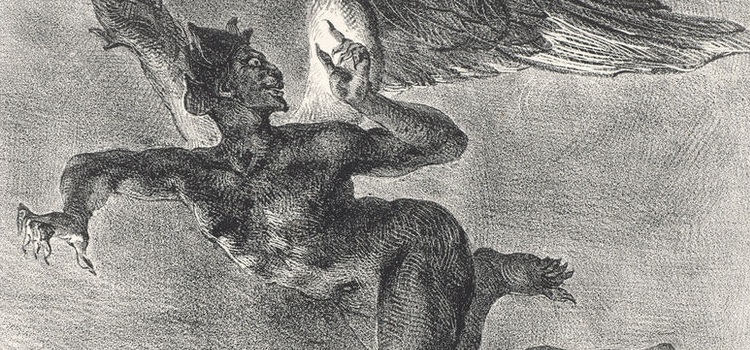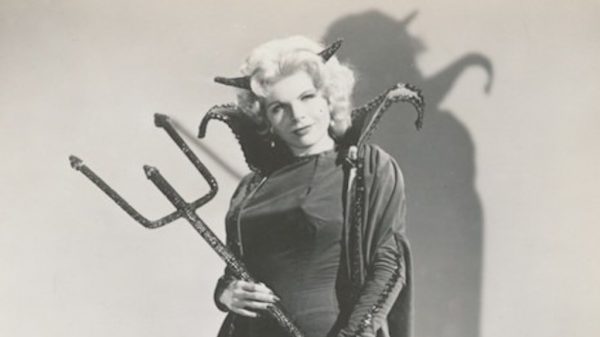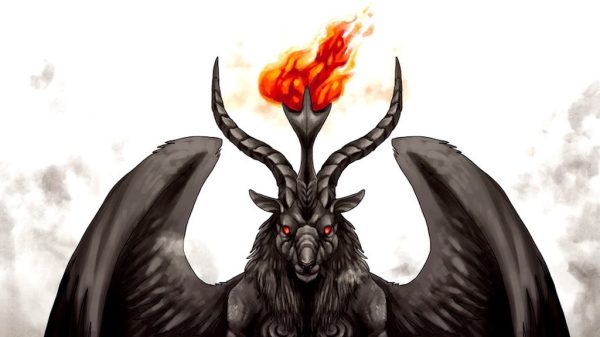In 1587, a book was published anonymously that retold the tales of great storied wizards such as Merlin and Albert Magnus, and attributed them to a man named Faust and his demon sidekick Mephistopheles. These stories were narrated humorously at Faust’s expense, but Mephistopheles was described in a more fiendish way. This book (Faustbuch), and the real life magician it was vaguely based on, is what sparked a legend that still lives to this day.
In the early version of the legend, Faust had turned his back on God, and decided not to be called a doctor of theology, but rather a doctor of medicine. He turns to black magic to call the Devil, and the demon Mephistopheles answers his call. They make a pact – Mephistopheles will serve Faust with his magic for a number of years but in the end, it will cost Faust his soul. Mephistopheles, of course, uses his tricks and lies to keep Faust from accomplishing much of anything during this time, and Faust tries to revoke his pact, which Satan of course rebukes. Eventually, Faust loses his soul to eternal damnation. Later versions of the legend (such as Goethe’s Faust) would change it into a tale of redemption, but the theme of Faust’s hubris is very common throughout most variations.
This legend spread mostly due to the European translation of Faustbuch, and only became more popular after Christopher Marlowe wrote The Tragical History of the Life and Death of Doctor Faustus in 1592. Christopher Marlowe’s version kept much of the humor that the Faustbuch had, as well as damning poor Faust’s soul to eternal hell in the end, unlike later versions. Faust dramas and puppet plays remained popular, particularly after Marlowe’s play was translated into German. These retellings kept much of the tragicomedy aspects that were popular in the play and the legend overall.
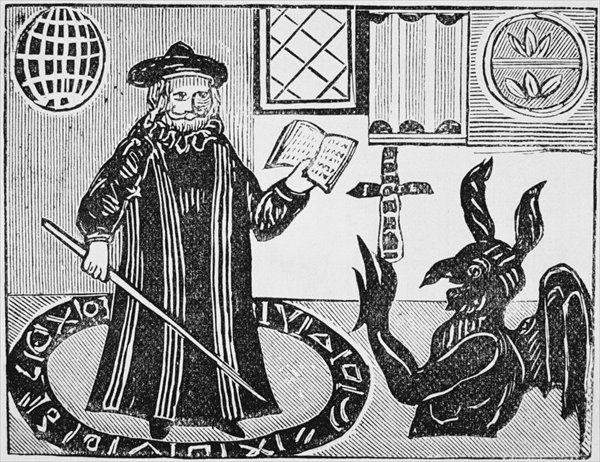
Goethe’s Faust (1808), is different from the original tale in many ways. It begins with Mephistopheles and God making a bet over Faust’s soul – God betting that if Mephistopheles leads Faust astray, that he will still find the right path. Mephistopheles shows himself to Faust, and says he will show Faust pleasures he has not yet seen; he bets Faust that if he can make Faust happy, he gets his soul. This telling of Faust is all tragedy, no comedy. It subverts many of the tropes of damnation of the original legend for its own theme of salvation, with or without Christian connotations.
Very little is known about the real Faust. It is assumed that the legendary Faust is based on Dr. Johann Georg Faust, who was an alchemist, astrologer, and magician. Most that is known about him is not confirmed to be fact, but apparently there were many rumors about him being a necromancer who spoke to the devil when he was alive and he was generally disliked, which was enough for him to be immortalized in a silly book and many stories based on it thereafter.
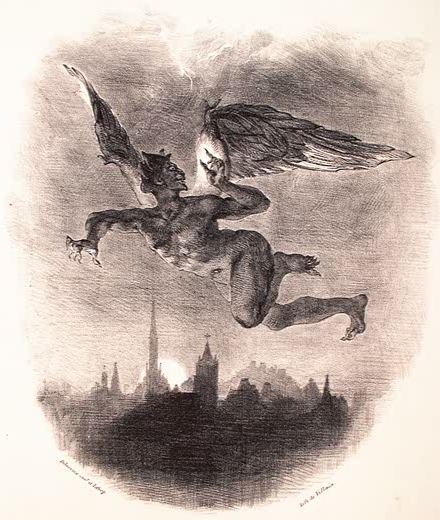
There are other folk tales that may have contributed to the legend as well, such as the Polish tale of Pan Twardowski. Pan was a nobleman who sold his soul to the Devil for great knowledge and magical powers. He wrote a book on magic and an encyclopedia, both dictated by the Devil. There is also, of course, the possible inspiration of the popular belief at the time of witches who would sell their souls to the Devil for untold powers. It also should be stated that Christianity could have been spreading such a story to sell this idea of damnation for seeking to forgo the church, or seeking power outside of it.
Centuries later the story of Faust continues to be prevalent in modern culture – “Faustian” is still a common term used for those damned by seeking too much power or knowledge; and there are still many retellings and nods to Faust in pop culture today. The Devil’s Advocate has some definite connections to Goethe’s version of Faust in particular, and the 2011 anime Puella Magi Madoka Magica is an incredibly clever retelling of the tale with overt nods to Goethe’s play.
So what makes this legend stick so much in the public consciousness? Is it the themes of hubris, damnation, and/or salvation that we can all relate to whether or not we are religious? I believe that there is a deeply humanistic element to this story, particularly modern retellings Goethe and beyond, that people can find within themselves that gives them hope to find salvation for their own apparent failures and hopelessness.
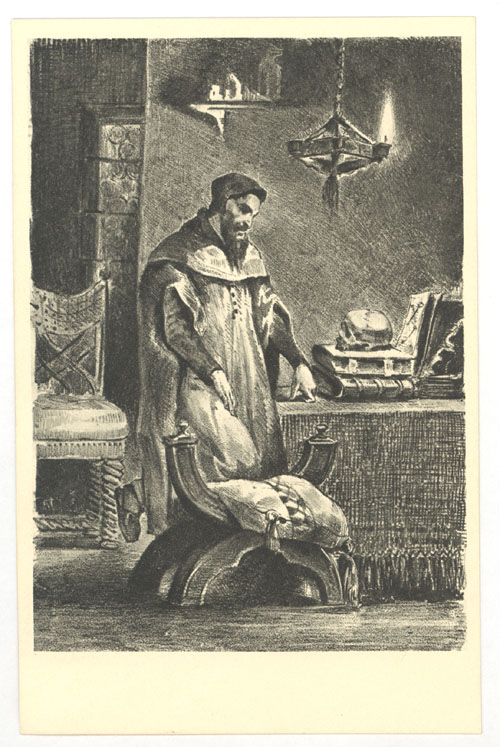
Sources:
https://www.britannica.com/topic/Faust-literary-character

